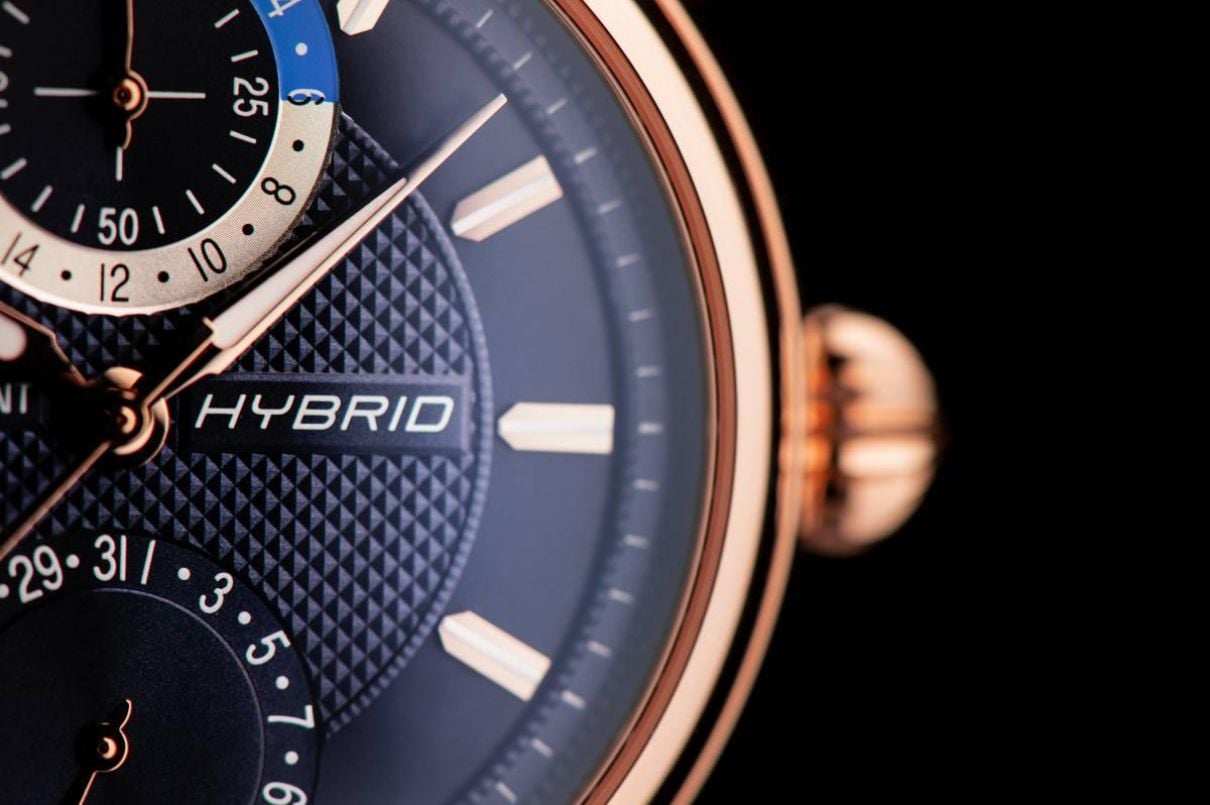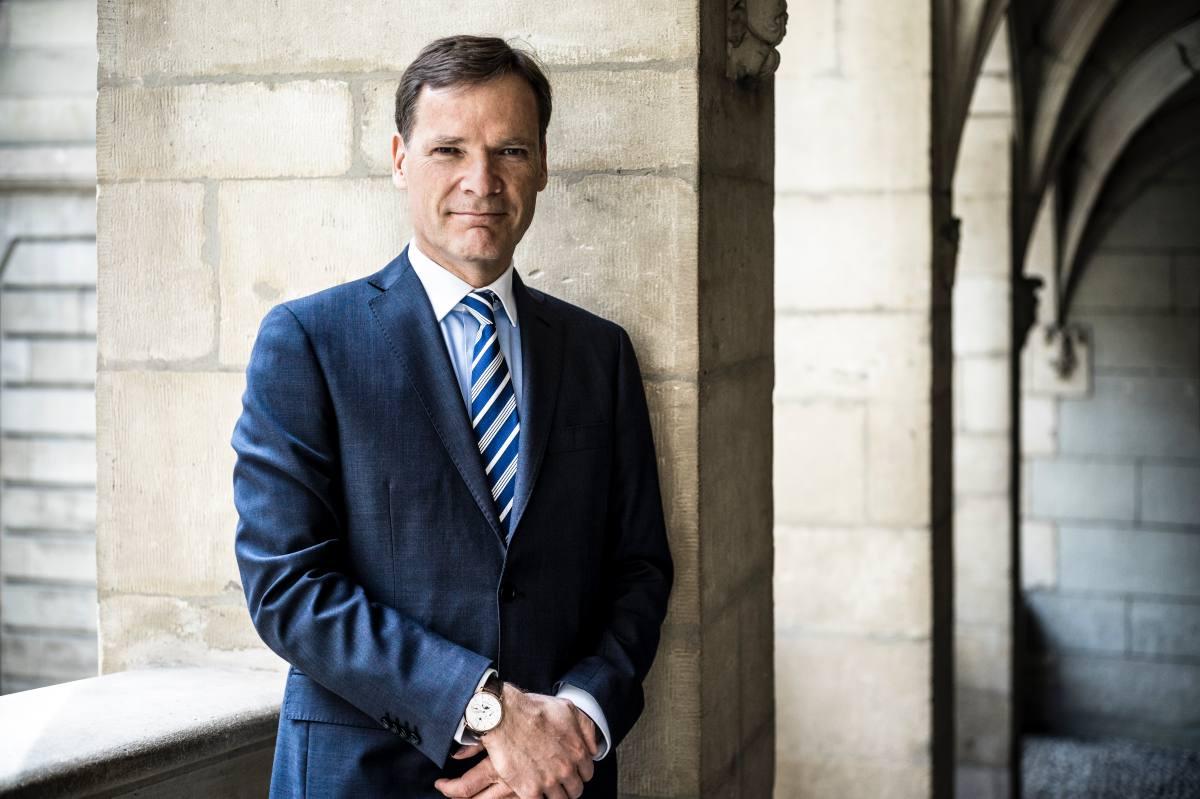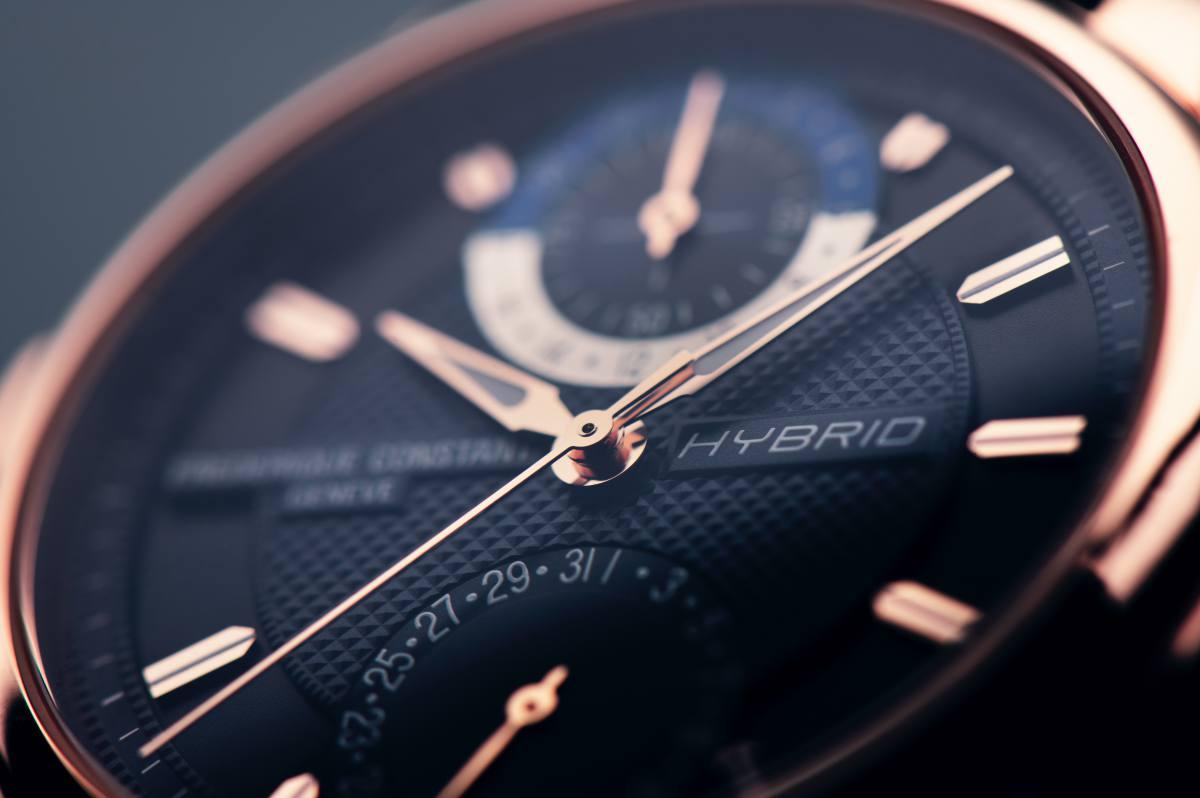Perfect Timing

Dutch horological entrepreneur Peter Stas is making serious headway in the smartwatch-as-medical-device sphere.

When two of the world’s biggest watch manufacturing groups make approaches to buy your company and then, not long after, a third does too, it more than signals that a tide of opinion has changed. “For the first 15 years of the company I think we were largely ignored,” says Peter Stas, Dutch entrepreneur and co-founder (with his wife Aletta) of the watch brand Frédérique Constant. “Then we built our own factory, right opposite Rolex and Piaget. That put us on their radar. That and the 26-square-metre sign we put up. I think that was when they realised that we were serious.”
Indeed, although Stas questions the term, they were more disruptors, and of a typically staid industry in need of it. Frédérique Constant, which Peter and Aletta sold three years ago to Citizen for an undisclosed sum (both continue to hold the senior management positions at the brand), might well have been considered somewhat presumptuous when it launched. Here was a new classic Swiss dress watch brand that challenged established brands and questioned all sorts of assumptions the industry held dear: heritage, pricing, technology.
“The industry was leaving all these opportunities for innovation,” says Stas. “One of the things about brands with 200 years of history is that they’re less inclined to do anything that might damage their heritage. We didn’t have that problem. We came as outsiders, free to do new things.”
Frédérique Constant opened the main-plate of its designs so you could look into the movement, then, with another line, it flipped the movement so the more attractive side could be seen from the front. Last year, to mark the brand’s 30th anniversary, it launched four new Perpetual Calendar tourbillon watches retailing at just under US$20,000 to about US$23,000, what Stas calls “a disruptive price — a price that will make your jaw drop”. And by that Stas means by how low it is.
“Making watches is a complicated business and there are a lot of margins taken along the way,” he concedes. “But we’ve certainly had a situation where a number of brands for a number of years have steadily pushed prices up. And some brands have gone overboard.”
Perhaps most radically of all, Stas (encouraged perhaps by his background in the fast-moving world of consumer electronics, in which the whole game is to make your competitors’ products feel redundant) was the first to introduce smartwatch technology into classical watch design.
“It’s remarkable how many brands in the watch industry still just don’t see the threat the smartwatch poses, says Stas. “You have many CEOs still saying the idea of the smartwatch isn’t important. The watch industry isn’t the only one to react slowly, of course. And often these industries all require outsiders to see things differently.”

MMT’S Hybrid Manufacture Watch (C) Eric Rossier
Although Stas sold Frédérique Constant and sister brands Alpina and Ateliers deMonaco to Citizen two years ago, there was one company they kept back: MMT (Manufacture Modules Technologies). Stas co-founded MMT five years ago and it is now making serious headway in the medical-device-as-smartwatch field, because, he says, you only have to read the trends to see the demand. He cites the rise of sophisticated, medical-grade, wearable sensors, predicted to radically overhaul healthcare. One watch of his, in development, will measure the fertility cycle of its female wearer; another looks not just to record vitals, but alert the wearer if something is amiss. MMT recently signed a licence with Phillips on a suite of heart measurements that they have patented and is working with a medical company to get certification for a glucose sensor.
Stas says that MMT’s new medical smartwatches will have something in common with Apple’s watches — the touch screen — but will also have hands and dials. It joins a race to develop scientific rigour in wearable devices, alongside the Apple Watch and Verily’s Study Watch (Verily is a subsidiary of Alphabet, like Google).
Being part of Citizen — as much a technology-driven brand as a watch-maker — is helping make such moves possible. Having sold the business is also allowing Peter and Aletta to look at room for improvement in other industries: Peter is now a consultant to superyacht builder Royal Huisman; while Aletta has invested in an internet retail platform for second-hand luxury goods.
“It does all feel different now, of course, because the brand we created is no longer ours,” says Stas. “Before we’ve always said no [to companies interested in acquisition] because we were growing fast and wanted to pass the company on to our children. But it became clear over the years that our children really weren’t interested. They have their own ideas. And we can’t complain about that.”
This article originally appeared in Billionaire's Visionaries Issue, March 2019. To subscribe contact








